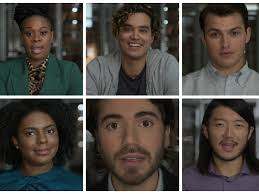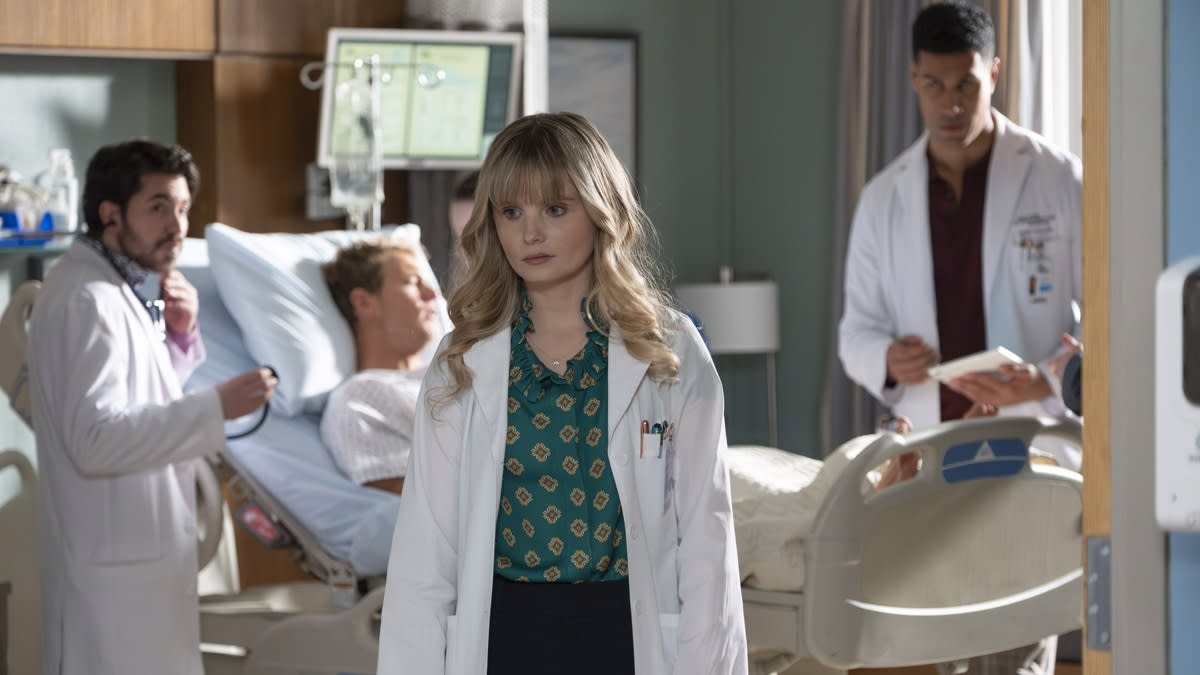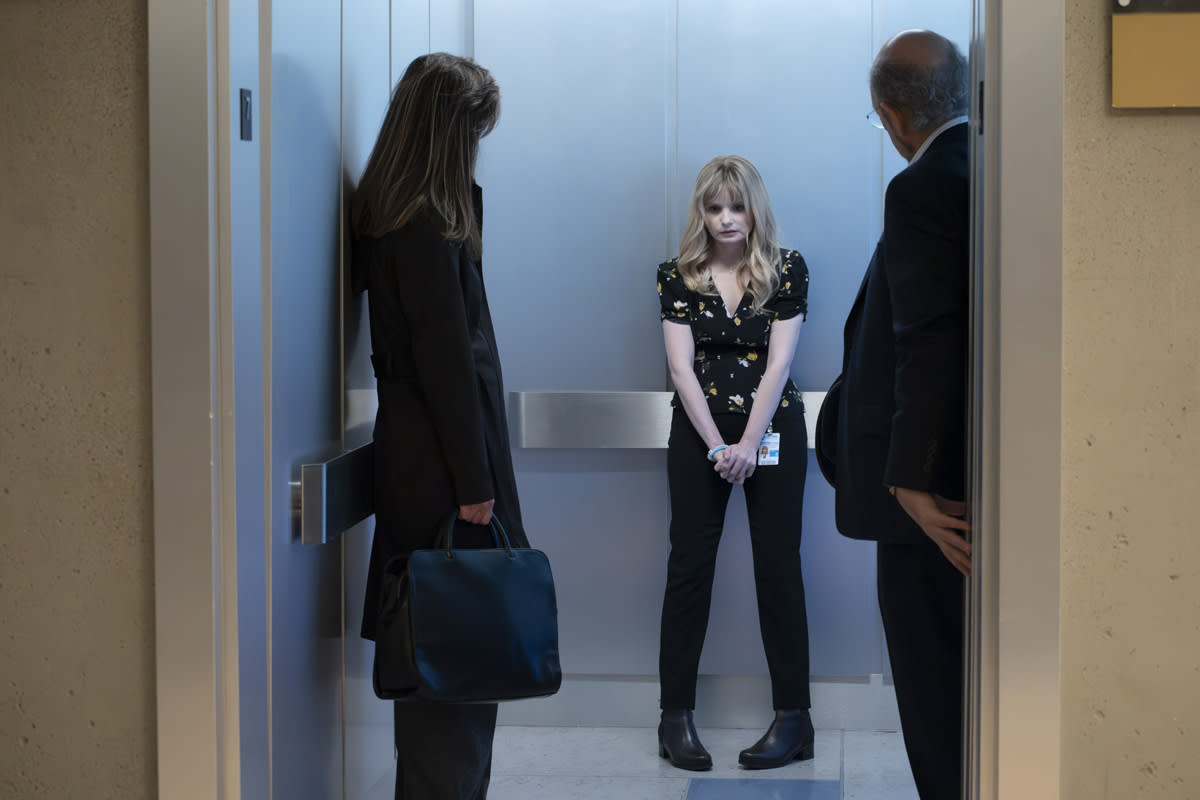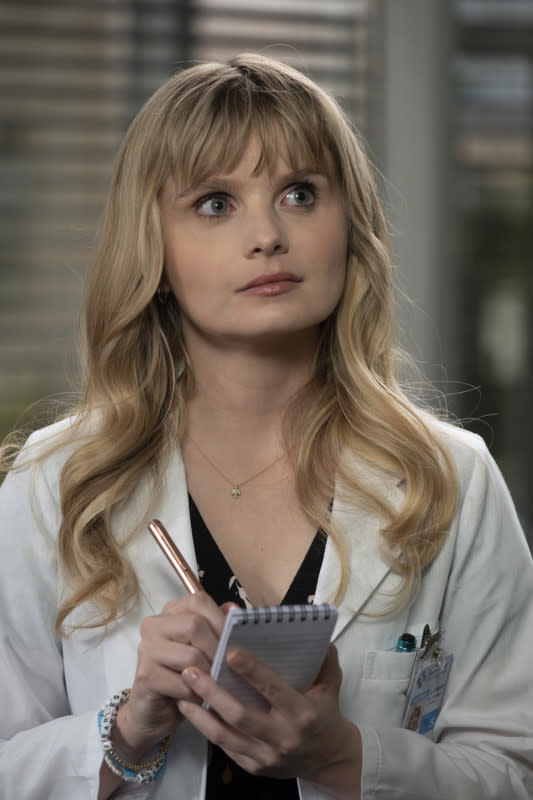
Freddie Highmore as Dr. Shaun Murphy and Kayla Cromer as Charlotte “Charlie” Lukaitis on ‘The Good Doctor.’
Kayla Cromer says that joining the cast of the hit medical drama The Good Doctor as one of St. Bonaventure’s two “newbies” has been life-altering.
The show, now in its 7th and final season, had a lengthy virtual audition process for the role of a medical student with autism, Charlotte “Charlie” Lukaitis, including more than one chemistry read with The Good Doctor star Freddie Highmore, who plays the title character of a gifted surgeon who has autism, Dr. Shaun Murphy.
Landing the role made Cromer the first autistic actor to play an autistic main character on a primetime TV series.
“Even though The Good Doctor went with a neurotypical actor to portray Dr. Shaun Murphy they opened the doors for discussions, and viewers have felt seen and networks noticed that,” Cromer told Parade ahead of World Autism Today (April 2). “Freddie Highmore’s portrayal is amazing.”
Cromer further credits The Good Doctor with helping viewers understand or expand their view of autism, which currently impacts 1 in 36 children in the U.S., in addition to their families. “Audiences of all ages look to characters in TV and film that they can relate to; something truer now more than ever,” she said.
“The series gives viewers a peek into the fact that diversity in the workforce is possible. The growth the writers gave [Dr. Murphy] from Season 1 until now, both professionally and in his personal life, was important to show.”
Read on for more from Cromer’s interview with Parade, including whether she’s a Swiftie like her character.
What was it like to join The Good Doctor family?
When I booked the role of Charlie, my face was going through so many emoji expressions. My team called me and I was pretty much speechless, except for squeals! A deep sense of accomplishment filled me because I worked very hard for this. It’s a feeling that is etched in me.
Did the writers incorporate aspects of your personality into Charlie? Are you guys similar or not?
Charlie and I are both extremely dedicated, determined and career-focused individuals. We can take things too literally, be plainspoken at times and thrive when the recipient of praise. There was a line that was cut in Charlie’s dialogue in which she talks about a special school that taught her to advocate for herself. I attended a school that taught me to do the same. When I was an infant and a toddler I used to tug my ear like Charlie does. At times, I wear a sensory fidget bracelet, too.
How do we differ? Charlie is still refining her judgment and her decision-making skills at work. I don’t make excuses or pull the disability card. I own my own mistakes, and I acknowledge them as part of the learning process. I learned early on that I don’t know the word easy. I know it takes more time for me. But I also don’t let my disabilities define me or take away from my goals.
On a lighter note, she loves medicine and medical research, but my love is for true crime, forensics and criminal profiling.
Were you a fan of The Good Doctor before joining the cast?
The first time I watched the show was when I booked the role. At the time the show started airing I was doing Everything’s Gonna Be Okay, and I didn’t want Freddie’s performance to influence my character decisions on set.
Were you aware that this would be the final season of the series when you were asked to audition?
No, absolutely not. I found out a few weeks into filming, just like everyone else did on set. I was devastated. I can’t discuss contracts, but I was even looking into relocating to Canada where we are currently filming. I had to memorize lines, shake off the disappointed feelings and rise above it for myself and the show. I had a responsibility.
Can you relate to the mentorship role between Charlie and Freddie’s character in The Good Doctor?
Yes, I have a coach I work with. We have a similar dynamic. He can frustrate you, make you angry and praise you. But it just makes you a better actor. Just like Shaun is trying to make Charlie a better doctor.
What advice would you give to an actor, especially one with autism, who’s seeing you on this show and saying, “Wow, this is kind of a game changer. If she can aspire to this maybe I could aspire to this.”
It’s been hard work to get to this point. And luck wasn’t part of the equation for me. I masked [myself] too long. It took two coaches telling me to embrace my genuine self and telling a group at my group Groundlings [acting] class that I was on the spectrum. Everyone was supportive and kept my secret. It felt like a weighted jacket came off of me when I told the public I was autistic. I saved up my money, loaded up my car and drove to Los Angeles on my own. I moved into a dorm-style house with 32 other creative people pursuing the entertainment industry. Then I transitioned into renting a one-bedroom apartment. And now I have my own apartment.




